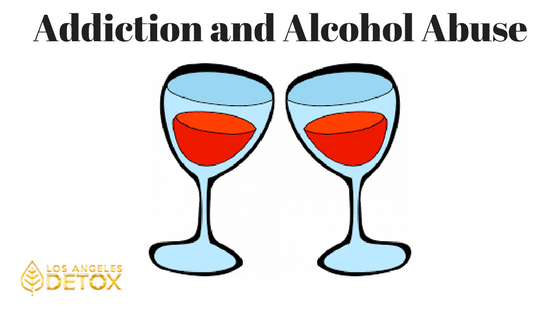Recovering from alcoholism may seem like a daunting and lengthy endeavor. However, the process can be simplified with proper support and treatment.
Alcohol use is typical in social circumstances, but some people go from casual drinking to abusing alcohol – or acquire an alcohol use disorder – which may vary from mild to severe. One of the trademark symptoms of addiction is the inability to regulate excessive drinking. For example, someone may partake in illegal activity that they wouldn’t normally entertain, like driving under the influence, reacting violently, or even theft. Several of these trademarks and likely outcomes of addiction involve:
- Establishing a tolerance.
- Physical dependency.
- Addiction consequences.
Not every alcoholic becomes physically dependent on alcohol, but hardcore drinkers are more likely to become physically dependent on drinking, particularly when consumption occurs on an ongoing basis. This happens when the body gets used to regular intake of specific alcohol levels. In such cases, a new balance is needed, and the body demands continuous drinking until it’s satisfied. This usually ends up with undesired and potentially hazardous results.
When consumption of alcohol stops abruptly or is substantially decreased, an individual will endure withdrawal symptoms. This may include sleep disturbances, hand tremors, perspiration, rapid heartbeat, vomiting, nausea, anxiety, hallucinations, restlessness, agitation, and seizures.
It is important to detox in a medically supervised atmosphere since alcohol withdrawal can be fatal. There are prescriptions that can alleviate the withdrawal process and reduce the risk of seizures. As part of a formal treatment program, adjunctive behavioral therapies may also help control withdrawal and decrease the likelihood of relapse.
Regular alcohol use can result in a tolerance build-up. This happens when the mind and body become immune to alcohol’s effects and necessitates increasing amounts to obtain the effect desired. Establishing a tolerance, particularly if it instigates more alcohol intake, may be a warning sign of an addiction-in-progress.
The impact of alcoholism and alcohol abuse are vast, sometimes affecting all aspects of a person’s life. From career opportunities to finances, and from social relationships to romantic ones, it can be hard for an alcoholic to control areas of their lives.
Rehab centers for alcohol offer proper treatments for alcoholism, providing patients with the tools they require to stay sober and get their lives back on track. Further, addiction and alcohol use negatively impact the mind and body, producing several health issues like cirrhosis, nutritional deficiencies, heart issues, brain damage, increased risk of certain types of cancer, damage to the digestive tract, higher risk of a fetal injury, and post-natal complications if alcohol is consumed during pregnancy. People who abuse alcohol are also more inclined to cause personal bodily injury, get into automobile accidents, and commit suicide.
Treatment for substance abuse at a professional alcohol rehab center can help an individual overcome their addiction and restore their health. People who accept treatment have a high success rate of accomplishing and maintaining sobriety.
Rehabilitation facilities for alcohol give patients the tools they require to remain sober and fix their lives. This usually starts in a detox center that is medically supervised, where prescriptions can be safely administered to make the withdrawal process easier for the patient.
It is important to follow up detox with additional treatment, like an outpatient or inpatient treatment program. Several recovering alcoholics obtain extra support in self-help meetings, such as SMART Recovery or Alcoholics Anonymous. As part of a medication-assisted treatment approach, FDA-approved medications like acamprosate, disulfiram, and naltrexone may be recommended, as they can treat dependency on alcohol after the completion of detox.
Alcoholism recovery can be a strenuous, long-term process. However, it can be easier to manage with the right amount of support and treatment.
Addiction to both prescription and recreational drugs is a problem all over the world. The barrier between recreational and prescription drug abuse is becoming slimmer as a rising number of legal medications have found their way to the black market.
Be mindful that every drug can result in an unhealthy dependency to them, in addition to negatively impacting one’s lifestyle and body. Plans for treatment will vary based on each particular drug. That said, most types of drug addiction benefit from both therapy and professionally supervised detox programs.
Prescription drug abuse happens when someone takes a medication that breaks the suggested dosage. Someone can take more than prescribed, take them more often than suggested, snort or inject the pills after breaking them into powder, or use them without a prescription in order to get high.
Withdrawal from most prescription and street drugs can be painful, uncomfortable, and fatal. In several instances, it will be necessary to detox in a facility that is medically supervised, where withdrawal symptoms can be alleviated with medications. With regards to drugs like hydrocodone, heroin, and oxycodone, special treatment medications like Suboxone can be used for detox purposes and to treat a dependency on opioids. Like treatment for alcoholism, additional treatment should occur after detox to address any underlying addiction causes and establish skills to prevent a relapse.
If you or someone you care about has an addiction of any kind, get in touch with us at 866-932-8563. Our rehab placement professionals will connect you with a suitable addiction treatment center that can put you on the road to a sober and healthy lifestyle. We can pair you up with a rehab program that can handle your specific type of addiction and tend to your individual requirements.







